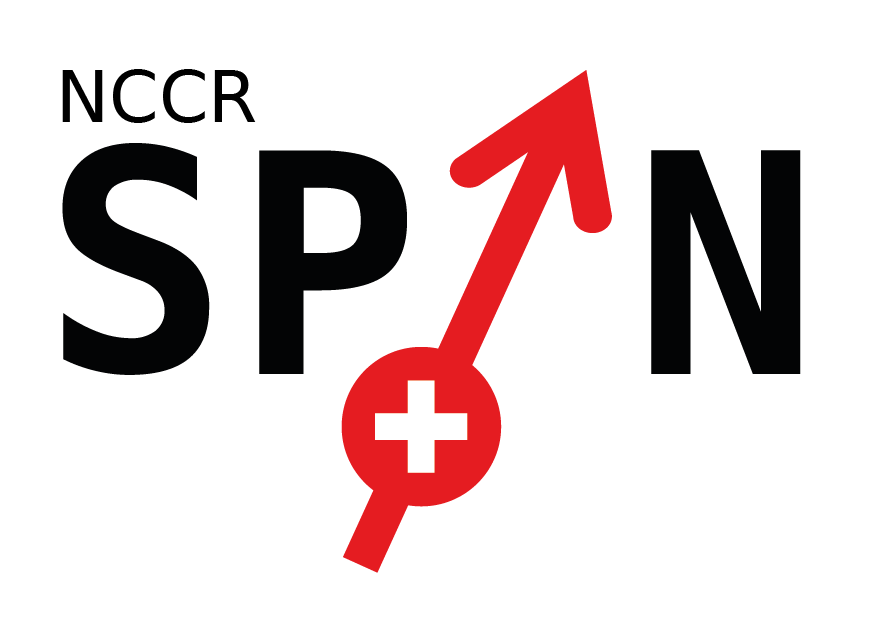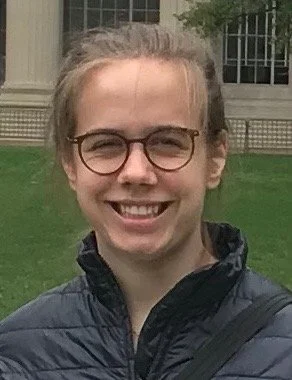I discovered how enjoyable it is to work in a team of theorists and experimentalists who all share a strong passion for quantum computing.
Interview with Caroline Tornow,
INSPIRE Potential SPIN Master’s fellow 2023
Who are you?
My name is Caroline Tornow. After my bachelor’s studies in Physics at the Ludwig-Maximilians-Universität in Munich, I am now completing my master’s studies in Quantum Engineering at ETH Zurich.
What attracted you to take a (quantum) physics career?
I started to study Physics because I always wanted to become an astrophysicist. This intention changed quite a bit in my fifth semester where I attended the “Atomic and Molecular Physics” lecture by Prof. Immanuel Bloch. In this lecture, I learned about the manipulation and cooling of atoms using lasers. I was immediately fascinated by this topic, and I soon had the opportunity to work in one of his laboratories as a Bachelor’s student. In the “Ultracold Ytterbium atoms in optical lattices” laboratory I was introduced to the fascinating topic of quantum many-body simulations with ultracold quantum gases and gained hands-on experience in working in a laser laboratory. Being part of this excellent laboratory for more than one year in total strongly motivated me to continue research in the field of quantum science. I therefore applied for the interdisciplinary Quantum Engineering master’s program at ETH Zurich to also dive into related topics such as the experimental and theoretical aspects of quantum information processing. After a semester project and a nine-month internship in the Quantum Computational Science group at IBM Research, where I worked on techniques to improve quantum computations close to the hardware level, I was highly excited to be able to join the research team for my Master’s thesis.
How have you heard about the INSPIRE Potentials Fellowship? In what way did the fellowship help you in your research?
I heard about the INSPIRE Potential Fellowship because it was advertised at various events at ETH Zürich. In addition, several professors and former INSPIRE Potentials fellows strongly encouraged female master’s students to apply for this scholarship.
Through this fellowship I had the opportunity to participate in various events organized by the NCCR Spin community. It was highly interesting and inspiring to meet other researchers belonging to the NCCR Spin network and to learn about their research.
What is the topic of your master’s project?
I’m writing my master’s thesis in the Quantum Computational Science group at IBM Research Zurich where I am jointly supervised by Dr. Daniel Egger (IBM Research) and Dr. Joseph Renes (Institute for Theoretical Physics, ETH) in the group of Dr. Tavernelli. My project mainly focuses on quantum error mitigation methods and on their implementation on the superconducting qubit-based quantum hardware.
What was the biggest challenge in your master thesis? What did you enjoy the most?
In my master’s thesis project, I am not only working on theoretical aspects of certain quantum error mitigation methods, but I also try to find ways to implement them in the best possible way on the quantum hardware. Here, it is always challenging to pinpoint the origins of problems when running experiments on the quantum computers. Sometimes it is also difficult to figure out why experimental results in some cases do not agree with the theoretical predictions.
I highly enjoy working in the vibrant and supportive research environment of IBM Research and discussing problems and new ideas with the excellent scientists there, e.g., during seminars, project meetings and coffee breaks. In my project, I especially enjoy working at the interface between theory and experiment.
What did you learn through this experience?
During my thesis work, I have been able to dive into the field of quantum error mitigation and learned a lot about different techniques used there, as well as the challenges researchers are currently facing when applying them on real quantum hardware.
I also discovered how enjoyable it is to work in a team of theorists and experimentalists who all share a strong passion for quantum computing. This reinforced my plans to pursue this kind of work in a PhD after having finished my Master’s thesis.
How was your experience living abroad? Was it the first time for you?
I moved to Switzerland in 2020, which was the first time for me to live abroad. In the beginning, it was sometimes challenging, also because of the ongoing Covid pandemic at that time. But in total, it was and still is a great experience which I would definitely not want to miss.
What are your plans for the future?
After completing my Master’s studies in the next months, I would like to start a PhD related to quantum computing or quantum simulation.

